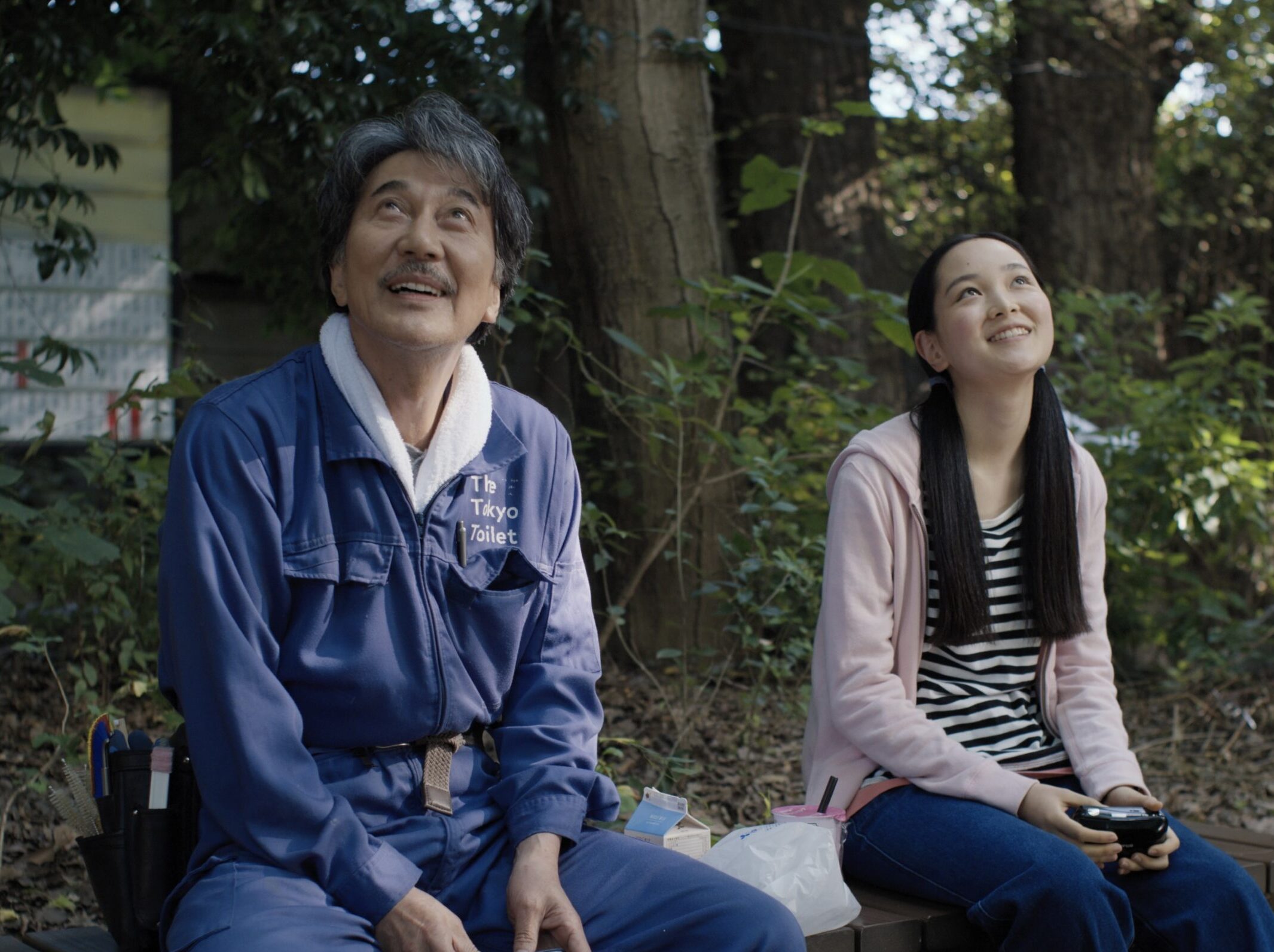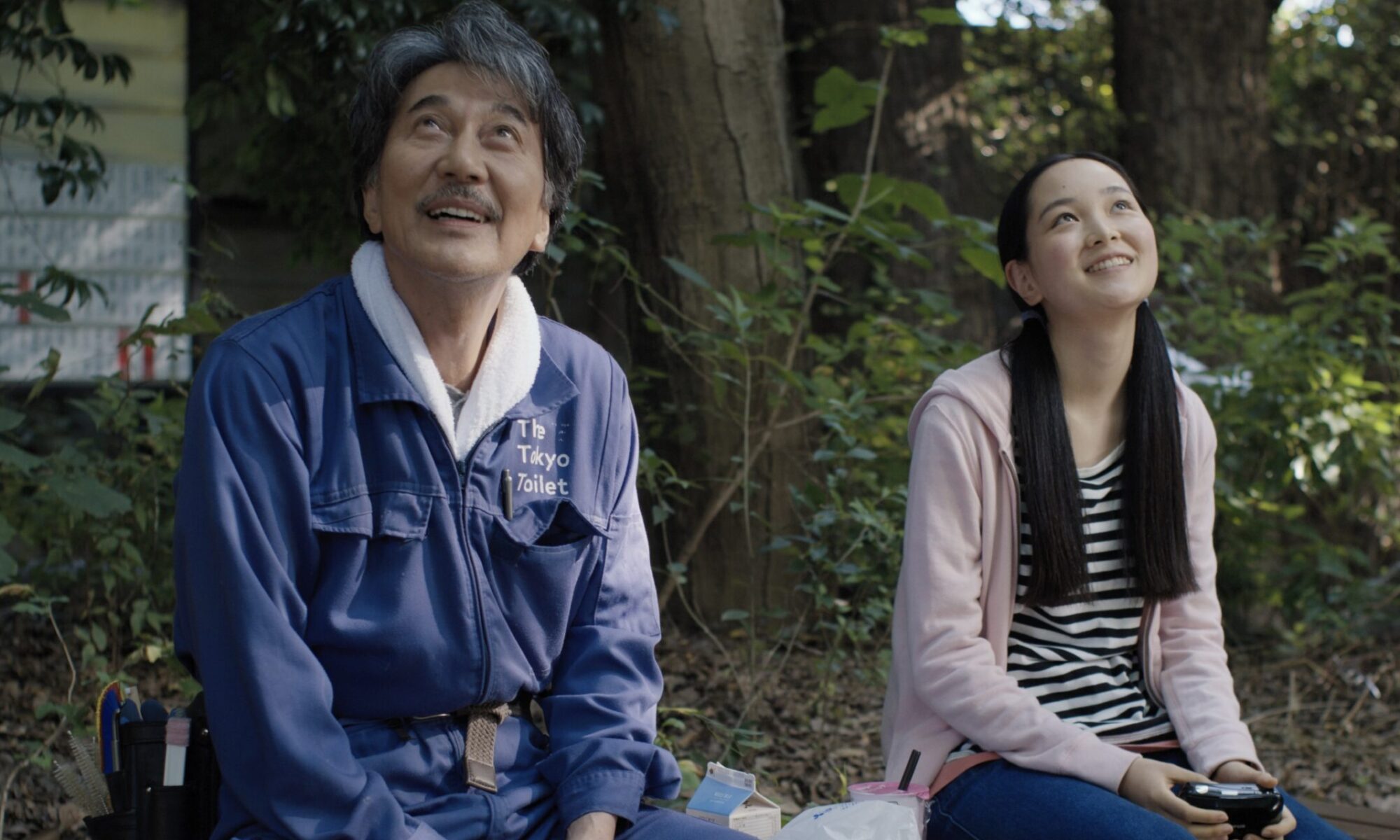
“Slice-of-life” is a genre term that has always bugged me.
While the standard definition of a slice-of-life film refers to a story without an overarching sense of plot — one without a conflict, antagonists or any real end goal in sight — most poster-child slice-of-life movies tend to skirt one or more of these conventions in practice.
“Lady Bird,” for example, is structured entirely around the titular character’s eventual graduation and move to college. “Eighth Grade,” as the title might imply, holds a similar structural issue. Even Akira Kurosawa’s classic “Ikiru,” a more out-of-the-box pick, still culminates in a fairly typical fashion by the end, eventually bowing to narrative conventions necessary to elicit a sense of rising action in the first place.
Is it possible, then, to create a true-blue slice-of-life movie, one that conveys meaning in a truly ordinary, unglamorous fashion?
Writer and director Wim Wenders’ latest film, “Perfect Days,” holds the answer. After all, nothing quite screams “unglamorous” like a main character who spends his days cleaning toilets, does it?
“Perfect Days” is a precisely by-the-books example of a slice-of-life story, taking place over two ordinary weeks in the life of a Japanese service worker. The main character, Hirayama, practically goes out of his way to avoid doing anything exciting or divergent from his typical schedule — though his unassuming, bland outlook on life may have more to it than meets the eye.
The film received a wide release in U.S. theaters on Thursday, Feb. 22 after premiering at the Cannes Film Festival in May 2023 — at which Koji Yakusho won the award for best actor for his portrayal of Hirayama — and released in Germany in December 2023.
The film was selected as Japan’s entry for Best International Feature at the 2024 Academy Awards. It was nominated alongside other international films that have received similar early 2024 catch-up releases, such as the United Kingdom’s “The Zone of Interest” and Germany’s “The Teachers’ Lounge.”
Where “Perfect Days” sets itself apart from the competition and other contemporary slice-of-life dramas is its willingness to sit in quiet moments, sometimes for entire days of its story, masterfully inundating viewers with the complicated simplicity of Hirayama’s life. The film is more than content to let its natural soundscapes speak for themselves, filling the background air with a purposeful selection of commonplace sounds and auditory cues, building a surprisingly intuitive framework for the character’s daily routine.
Each morning, he wakes to the sound of a street cleaner’s broom rustling outside his window; he eats his lunch listening to the wind whistling through the trees; and he drives home as the sounds of Tokyo traffic mingle with those of his vintage cassettes.
The film’s strength lies not only in portraying such stagnance with grace but also in simultaneously transforming these habits of practiced loneliness into something more deliberate and complex.
After all, on the surface, Hirayama’s life should seem a cautionary tale of squandered potential. He scrubs toilets for a living, lives alone in a dingy apartment and eats processed foods in cheap crinkly containers. In a critical sense, his life should be nothing but plaintively dull. It’s the distinctly human element present in the story, then — one achieved through a top-notch balance of writing and editing — that elevates this mundanity into a rich chronicle of what it means to be an individual living in Japan in 2023.
Wenders asks the audience to join in probing the characters’ lives for meaning, both critiquing and celebrating the stasis of Hirayama’s life in equal measure along the way. The result is a strikingly wide-reaching study of humanity that seems to tug at the poet in all of us, the kind of intrinsic spirituality that only seems to emerge on clear moonlit drives and rainy summer afternoons.
The film isn’t afraid to get in your face with its emotional substance, either. After Hirayama reconnects with his young niece, Niko, at a certain point in the story, Van Morrison’s “Brown Eyed Girl” begins cheekily blaring just minutes after, to great effect.
Likewise, Yakusho is a force to be reckoned with in his often-silent main role. His minimal speech gives each mannerism and flicker of the eyes especially pronounced meaning, not to mention how his embodiment of the character culminates in one climactic cymbal crash of emotion in the final scene.
Needless to say, “Perfect Days” is nothing less than a miracle in movie form. It’s a powerful, direct and unapologetically hopeful tale masked within an equally potent story of loneliness, regret and sorrow. If that sounds like an odd mix, it’s because only a recipe as tenderly bittersweet as this could produce a work this profoundly human.
I don’t know about you, but that sounds like one slice of life I’d enjoy taking a bite out of.
Kevin Lynch can be reached at lync1832@stthomas.edu.

